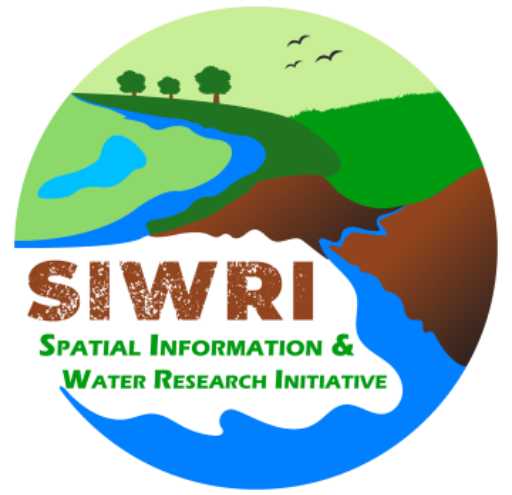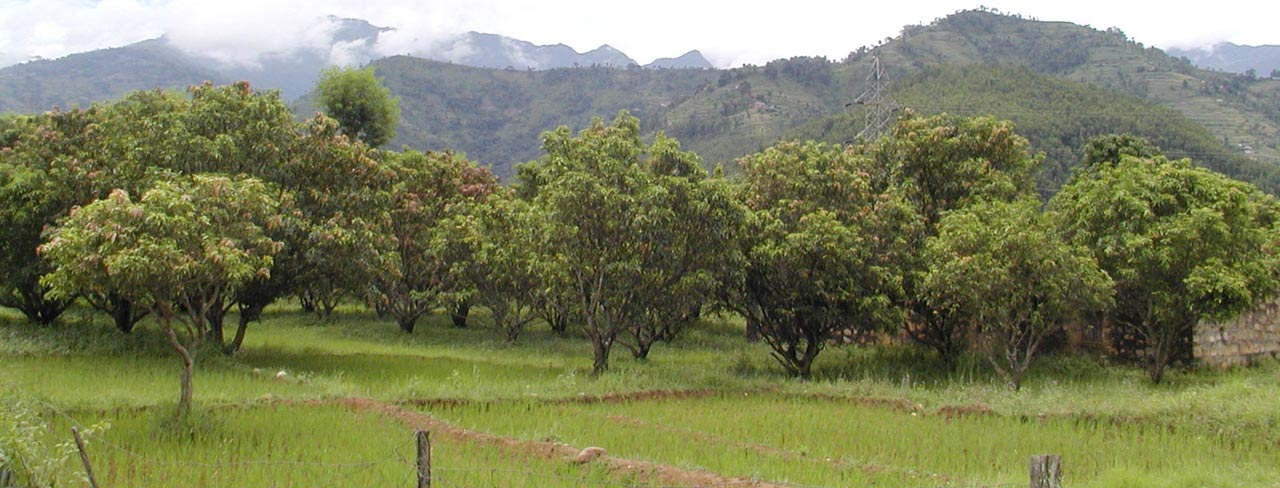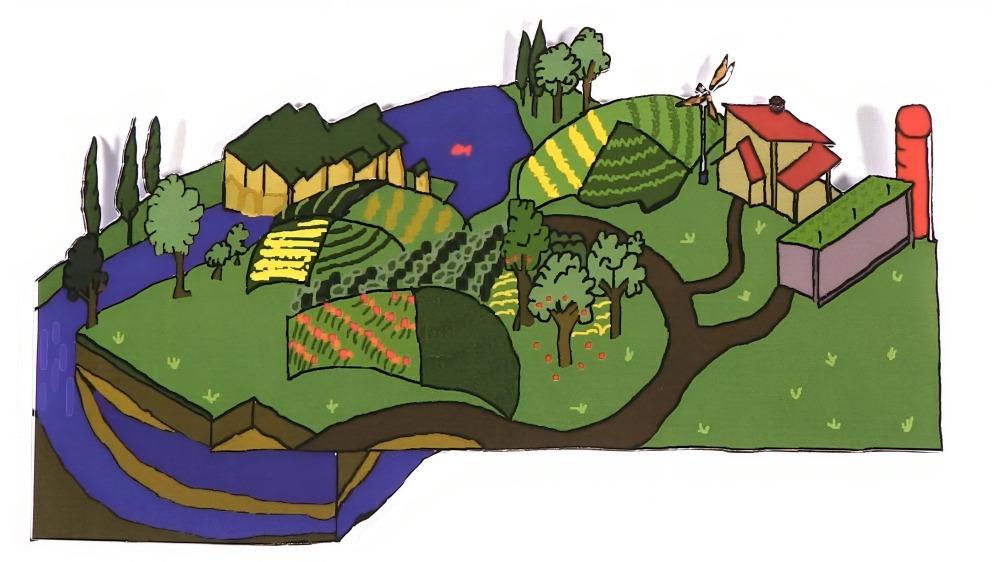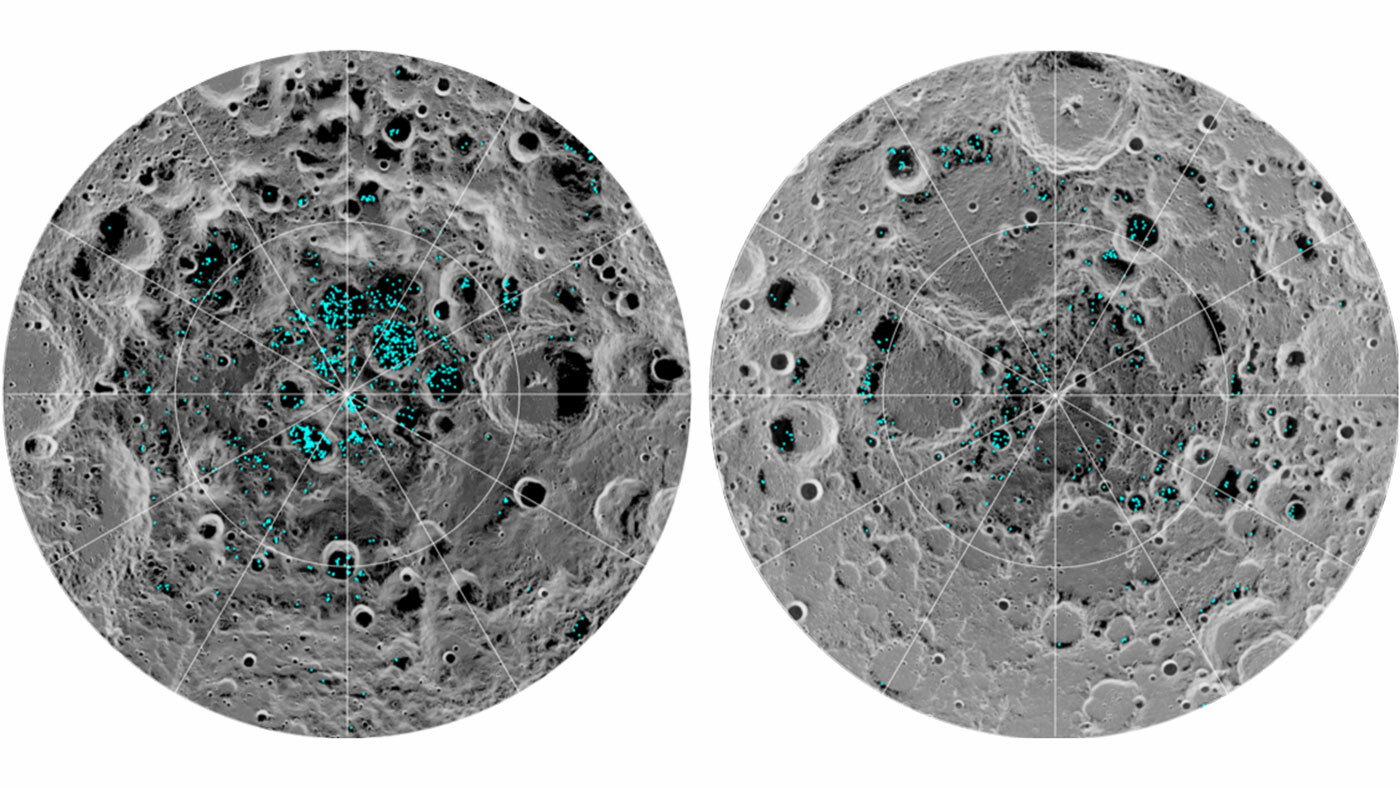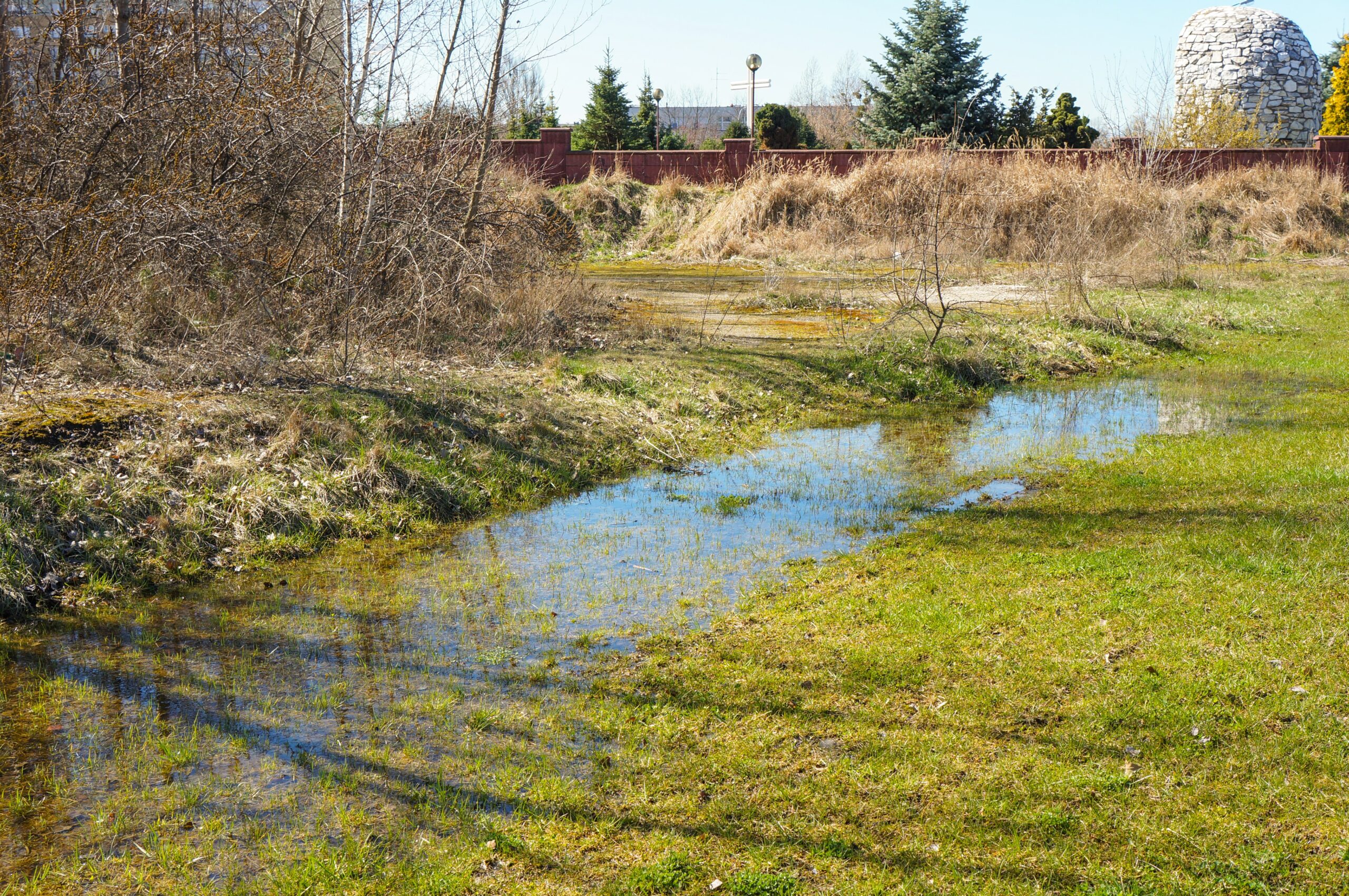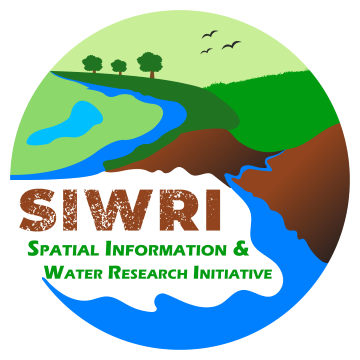Introduction
Are you passionate about water engineering and environmental engineering? Do you aspire to make a career in this domain? Look no further! Join me as I share my incredible journey spanning over 20 years in water and environmental engineering. From humble beginnings in grassroots NGOs to multinational consulting firms and software organizations, my experiences have shaped my expertise and provided invaluable insights and navigate various aspects of water and the environment. This journey has opened the doors to numerous career breakthroughs.
So get ready to be inspired and motivated to embark on your own path in the water and environment domain. In this article, I aim to shed light on the potential for individuals to forge a successful career by leveraging their expertise within the water domain across different industries.
When it comes to building a career in the water sector, the possibilities are vast and diverse. Over my 20 years of experience in this domain, I have had the privilege of working across multiple industries, from grassroots NGOs to multinational consulting firms and IT/software organizations.
Career Breakthrough: Fostering Water Engineering and Environmental Engineering for Cadre Building for Natural Resource Management Training Program
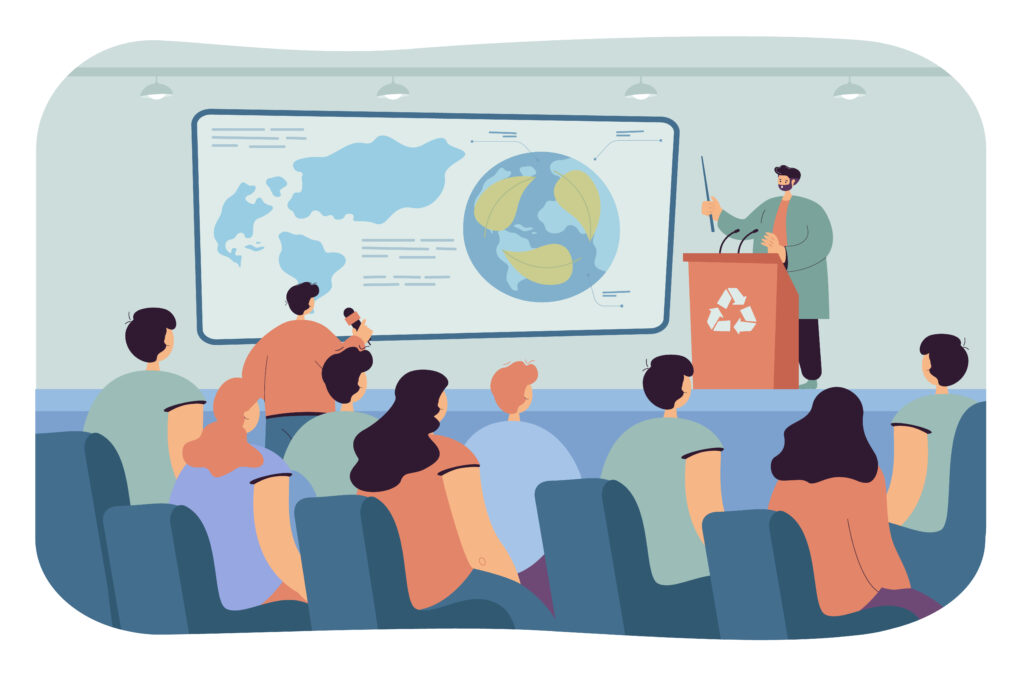
Seizing an Opportunity
My own journey in the water sector began with a significant opportunity after finishing Civil Engineering—an offer to join a one-year training program called “Cadre Building for Natural Resource Management.” This program, sponsored and funded by the Swiss Development Corporation (SDC) and organized by Action for Food Production (AFPRO). AFPRO, a reputable national-level socio-technical NGO, became the stepping stone for my career in the water sector.
A Holistic Approach to Training
The training program followed a comprehensive approach that combined theoretical knowledge with practical experience. It encompassed various modules, such as capacity building, socio-economic survey and analysis, data collection, and planning, designing, and implementing watershed development programs in rural areas. This holistic approach allowed me to acquire a broad skill set and an in-depth understanding of crucial aspects such as rural development, water supply and sanitation, watershed development, soil and water conservation, and water management.
Capacity Building and Practical Training
The core focus of the program was on capacity building, enabling participants to develop and enhance their skills in various aspects of natural resource management. From conducting socio-economic surveys to designing watershed development programs, the training encompassed a comprehensive range of topics. The practical nature of the program allowed us to apply theoretical concepts to real-world scenarios, thereby strengthening our understanding and problem-solving capabilities.
Socio-economic Survey and Analysis
One of the fundamental modules of the training program revolved around socio-economic survey and analysis. We learned how to gather essential data, conduct surveys, and analyze the socio-economic factors that influence natural resource management. This knowledge provided valuable insights into the socioeconomic dynamics of rural communities and enabled us to design more effective and inclusive initiatives.
Planning and Implementing Watershed Development Program
A significant component of the training program was dedicated to planning, designing, and implementing watershed development programs. Through this module, we explored strategies to conserve water resources, manage soil erosion, and promote sustainable land use practices. We also involved in the core part of watershed development is to design of soil and water conservation structures in the catchment area. This comprehensive understanding of watershed development equipped us with the tools necessary to address environmental challenges and foster long-term sustainability.
Empowering Communities for Sustainable Development
The training program emphasized the importance of community participation and empowerment. We recognized the significance of engaging local communities in decision-making processes and implementing sustainable practices collaboratively. By working closely with community members, we fostered a sense of ownership and built partnerships that would contribute to the long-term success of the initiatives.
A Transformative Experience in Water Engineering and Environmental Engineering
In conclusion, the “Cadre Building for Natural Resource Management” program was a turning point in my career. It deepened my understanding of sustainable development and equipped me with practical skills to address natural resource management challenges. This training program has had a lasting impact on me and I am grateful for the opportunity and excited to continue my journey towards a more sustainable future in water engineering and environmental engineering domains
Enhancing Rural Livelihoods: Advancing Water Engineering and Environmental Engineering Solutions for Sustainable Communities
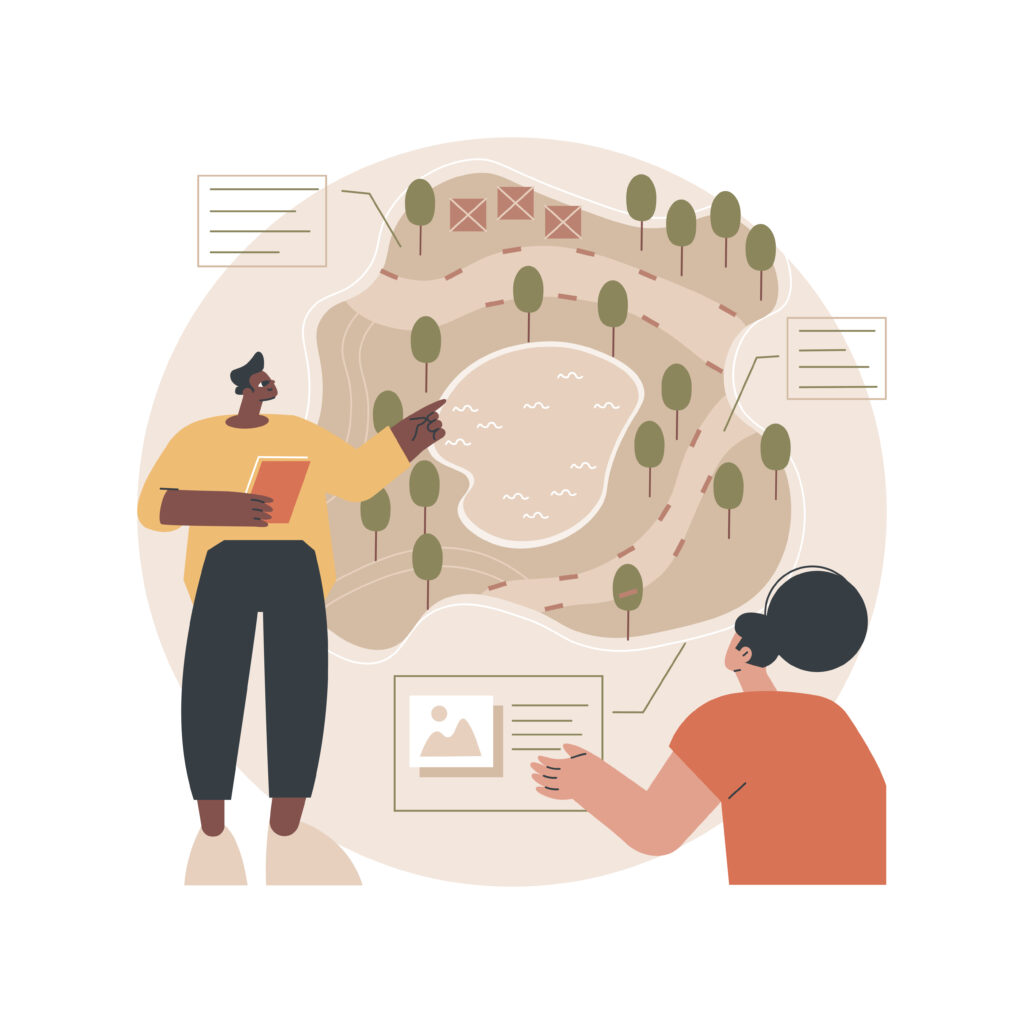
Continuing from my previous article, where I discussed the valuable training program that kickstarted my career in the water sector. Now I want to share my subsequent experience working with a grassroots-level NGO. This opportunity marked another significant milestone in my journey within the water and environment domain, further solidifying my commitment to making a difference. In this section, I will delve into the details of my involvement with the NGO and the projects I worked on, highlighting the seamless linkage between the two experiences.
Joining the Grassroots-Level NGO
After completing the training program, I seized the opportunity to work with a grassroots-level NGO dedicated to integrated rural development. This organization had successfully secured funding from both local government sources and international donors. It was inspiring to witness the combined efforts of various stakeholders coming together to drive positive change in the development sector.
Water Supply and Sanitation Project
Within the NGO, I was entrusted with a foreign-funded project focused on Water Supply and Sanitation. This particular initiative was generously supported by KfW, an international donor agency based in Germany. My responsibilities revolved around developing a comprehensive masterplan for Water Supply and Sanitation facilities in six villages. This master plan encompassed the design, implementation, and monitoring of water supply and sanitation systems. What made this project truly impactful was its participatory approach, ensuring the active involvement of the community in decision-making processes. It was real experience in water engineering and environmental engineering domain.
Integrated Watershed Development Program (IWDP)
Simultaneously, I also contributed to another foreign-funded project, the Integrated Watershed Development Program (IWDP), which also received funding from Germany, and the program was known as Indo-German Watershed Development Program (IGWDP). This program was also co-funded by National Bank For Agriculture And Rural Development (NABARD). This initiative, too, adopted a participatory approach, emphasizing community involvement. Working on the IWDP project provided me with an opportunity to witness firsthand the power of collaboration and collective action in achieving sustainable outcomes.
Applying Water Engineering and Environmental Engineering Skills and Continuous Learning
The skills I developed during the training program were instrumental in successfully executing the projects with the NGO. These skills include capacity building, socio-economic survey and analysis, data collection, and technical aspects such as planning, designing, and implementing watershed development programs. The projects not only allowed me to apply the knowledge and skills acquired during my training program but also provided an avenue for continuous learning and growth within the water sector.
Global Perspective and Sustainable Development
Moreover, the exposure to foreign-funded projects emphasized the global nature of the water sector and the importance of sustainable development. It was a humbling experience to witness the positive impact that foreign funding can have on local communities, providing resources and support to address critical water-related challenges.
Conclusion
In conclusion, my journey within the water sector took a significant leap forward as I transitioned from the training program to working with a grassroots-level NGO. These experiences seamlessly linked together, reinforcing the value of multidisciplinary expertise and the potential to make a lasting impact. I actively contributed to rural development, water supply and sanitation, watershed development, and water conservation projects, promoting sustainable community development. This journey served as a testament to the boundless possibilities within the water engineering and environmental engineering and the ability to forge a rewarding career by leveraging expertise across diverse industries.
Exploring New Horizons: Transitioning from Grassroots Organization to Water Engineering and Environmental Engineering Consulting Organization
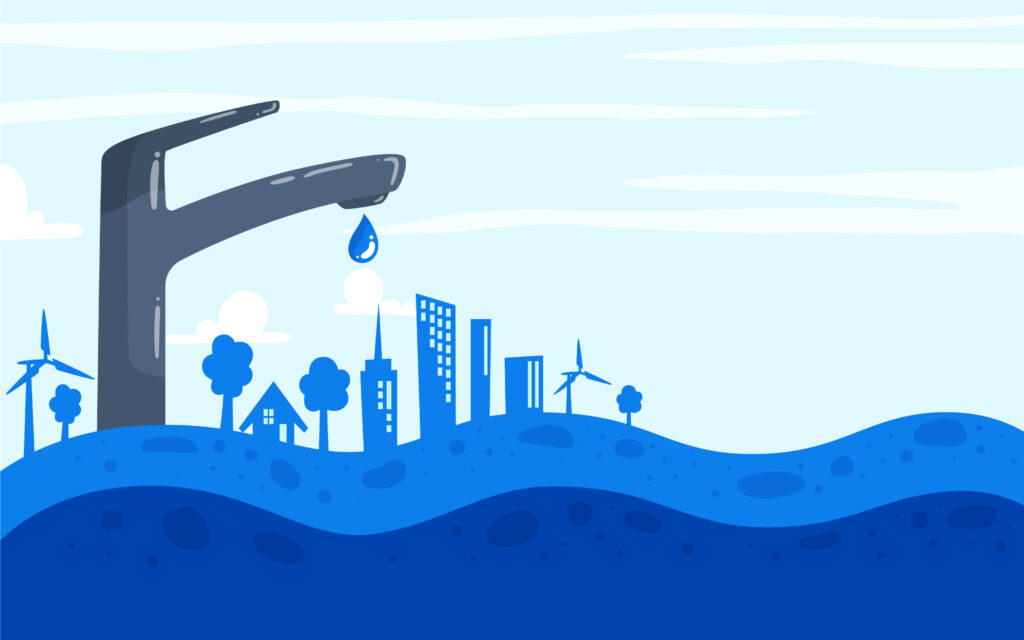
Continuing from my previous article where I discussed my experience working with a grassroots-level NGO, I now want to share the next chapter of my journey in water management consulting. After dedicating over two years to the NGO, I felt a strong desire to venture into new and exciting opportunities. It was then that I made the leap into a water management consulting organization. In this section, I will delve into the details of my experience in consulting, highlighting the seamless linkage between my previous experiences and the valuable skills I gained in this new role.
Engaging in Consulting Process
In my role, I actively engage in a range of processes, starting from crafting project proposals to conducting city surveys, and ultimately designing water distribution and wastewater systems for municipal corporations. This hands-on experience provided valuable insights into water management, including water distribution, wastewater and stormwater modeling. In this organization, I relearnt water engineering and environmental engineering in a practical way.
Utilizing State-of-the-Art Software in Water Engineering and Environmental Engineering
Working with a reputable consulting organization, I have had the opportunity to utilize state-of-the-art software from Bentley Systems, including WaterGEMS and SewerGEMS. These world-class tools have proven instrumental in effectively designing and modeling water and wastewater systems. Despite being a medium-sized consultancy, we have successfully undertaken numerous projects in this field, underscoring our expertise and commitment. We were able to create efficient and resilient systems that promote the responsible use of water resources.
Transitioning to Higher Studies in Water Engineering and Environmental Engineering
This five-year journey in the consulting sector has had a profound impact on my aspirations and ambitions within the water domain. As I reflect on my accomplishments, I have decided to take a break from my current employment and pursue higher studies in the water sector. This decision is driven by a desire to further deepen my understanding of water resource management, sustainability, and emerging technologies. By equipping myself with advanced knowledge, I aim to contribute more effectively to addressing the complex water challenges our world faces.
Conclusion
In conclusion, transitioning from a grassroots NGO to a water management consulting organization allowed me to explore new horizons and expand my expertise within the water and development sector. The seamless linkage between my previous experiences and the consulting role showcased the versatility and interconnectedness of the water domain. By leveraging my skills in water resource engineering, I made significant contributions to advancing water infrastructure and urban water management. As I embark on my journey toward higher studies, I am excited to continue pursuing my passion for sustainable water resource management and making a positive impact in the field.
Expanding Horizons: Higher Education Journey in Water Engineering and Environmental Engineering
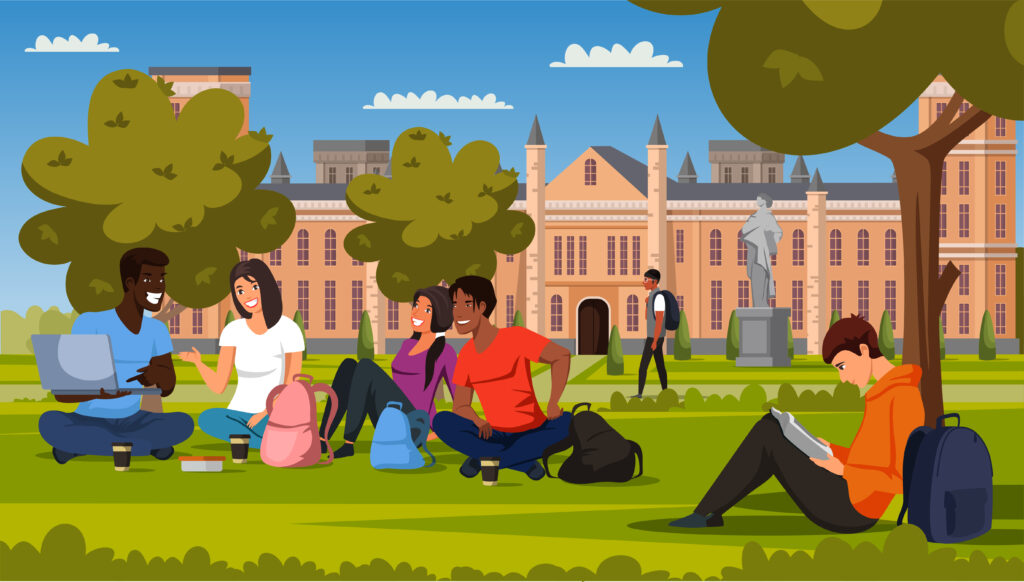
Image by studio4rt on Freepik
Continuing from my previous article, where I discussed my experiences in water management consulting, I now want to share the transformative experience of studying abroad for a Master’s in Water Engineering. This international study program became the next chapter in my continuous pursuit of knowledge and career advancement within the water and environment domain. In this section, I will delve into the details of my international master’s study experience, highlighting the seamless linkage between my previous experiences and the invaluable insights gained during my master’s program.
Enrolling in an Internationally Acclaimed Program
After carefully considering various options, I came across a study program in Delft, The Netherlands, which perfectly suited my aspirations for higher education. With great enthusiasm, I enrolled myself in the prestigious IHE-DELFT, The Netherlands Institute of Water Education, to pursue a master’s degree in Water Engineering. Fortuitously, I was granted a prestigious NFP fellowship (Netherlands Fellowship Program) for this program, which has since been renamed OKP (Orange Knowledge Programme).
Comprehensive Curriculum and Specialized Skills in Water Engineering and Environmental Engineering
The Master’s program in Water Engineering offered a comprehensive curriculum that included a variety of subjects. It explored various aspects of water and environmental engineering, covering a broad spectrum of topics. This program provided me with extensive knowledge of crucial concepts and specialized skills. Throughout my academic journey, I had the opportunity to deeply study hydraulics, hydrology, water distribution modeling, land and water management, groundwater modeling, water quality, water treatment processes, GIS, and geospatial applications.
Building a Diverse and Global Network
One of the most enriching aspects of my study abroad experience was the diverse student community I became a part of. Interacting with fellow students from around the globe provided a unique opportunity to exchange ideas, learn from different perspectives, and foster lasting connections. This global network of like-minded individuals in the water sector has proven invaluable, enabling me to collaborate on future projects and stay updated with international advancements in the field.
Broadening Knowledge and Expanding Horizons
The study abroad experiences not only broadened my knowledge but also expanded my horizons. Being exposed to international perspectives, innovative research, and state-of-the-art technologies enhanced my ability to tackle complex water-related challenges with a global mindset. The insights gained from my master’s program have equipped me with the necessary skills and expertise to contribute effectively to the field of water engineering on a global scale.
Conclusion
In conclusion, pursuing a master’s degree in Water Engineering and Environmental Engineering abroad was a transformative experience that provided me with a deeper insight into the water sector and enabled me to build a strong network of like-minded professionals worldwide. The seamless linkage between my previous experiences and the master’s program allowed me to leverage my existing skills while gaining new knowledge and perspectives.
Consulting Organization: Embracing a Multinational Culture in Water Engineering and Environmental Engineering
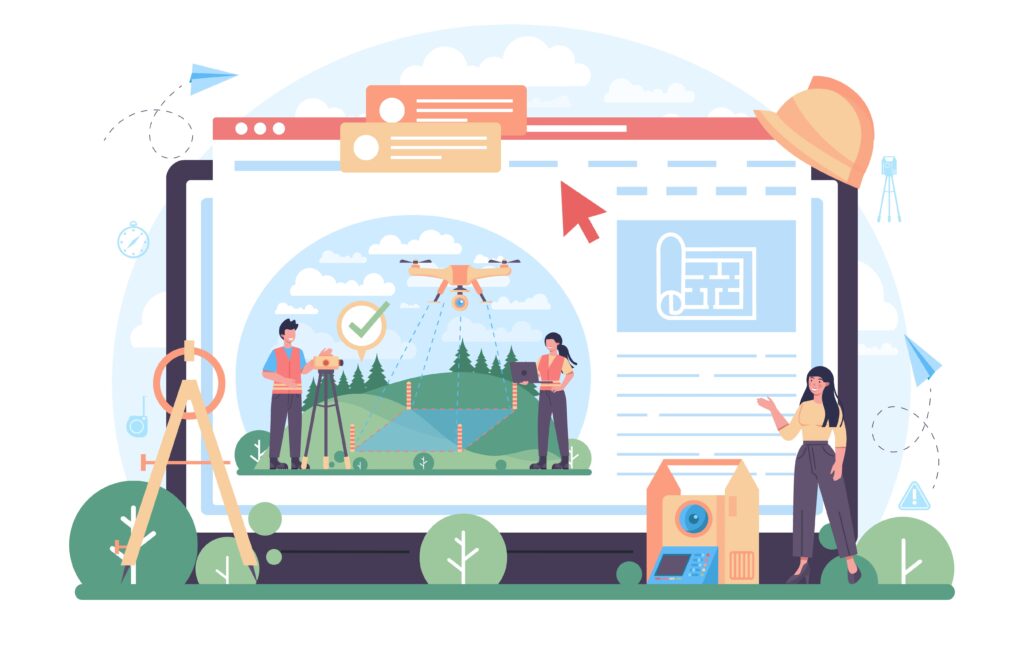
Working in a multinational consulting firm afforded me a truly global opportunity, immersing myself in an international work culture that adhered to the highest standards. The unwavering emphasis on work ethics and meticulousness set an unparalleled benchmark. Throughout my tenure, I actively contributed to a diverse range of projects, including the development of a Master’s plan for water distribution and wastewater modeling for esteemed clients on an international scale. This engagement allowed me to acquire invaluable hands-on experience utilizing Bentley Systems’ exceptional software solutions, particularly WaterGEMS and SewerGEMS, renowned for their exceptional design and modeling capabilities pertaining to water and wastewater systems.
Focus on Modeling in Water Engineering and Environmental Engineering
The organization I was part of placed great emphasis on water resource modeling, encompassing domains such as water distribution, wastewater management, stormwater modeling, and comprehensive urban water modeling systems. Moreover, the firm played a pivotal role in driving advancements in water infrastructure and advocating for sustainability practices. It was a great feel of reassessing water engineering and environmental engineering again as with my previous organization.
Enriching Experience and Skills Development
Undoubtedly, my tenure within this multinational organization proved to be an immensely enriching experience that substantially expanded my knowledge base and honed my skills in the field of water resource engineering. The exposure to a wide array of projects equipped me with a deep understanding of the complexities associated with water distribution and wastewater management. The utilization of cutting-edge software solutions enabled me to develop expertise in modeling intricate systems and devising optimal solutions. Furthermore, collaborating with international clients fostered my cross-cultural communication skills, enabling me to effectively interact with diverse stakeholders.
Conclusion
In conclusion, my time in this multinational consulting organization not only provided me with a platform to contribute meaningfully to significant projects but also equipped me with invaluable experiences and skills that have bolstered my professional growth in the field of water resource engineering.
Transition to a Multinational Software/IT Company
One year later, I received an exhilarating offer from a renowned multinational software/IT company. They extended an invitation for me to join their team as a domain expert in their Hydraulics and Hydrology software portfolio, specifically focusing on the versatile OpenFlows Software suite. I had been utilizing this software to model water systems within my current organization, so the opportunity piqued my curiosity and excitement. Without hesitation, I accepted the offer, marking the beginning of a new chapter in my professional journey.
To learn more about my experiences and the subsequent developments in my career, please continue reading in the next section.
Blending Expertise: Behind the Water Engineering and Environmental Engineering Software Applications
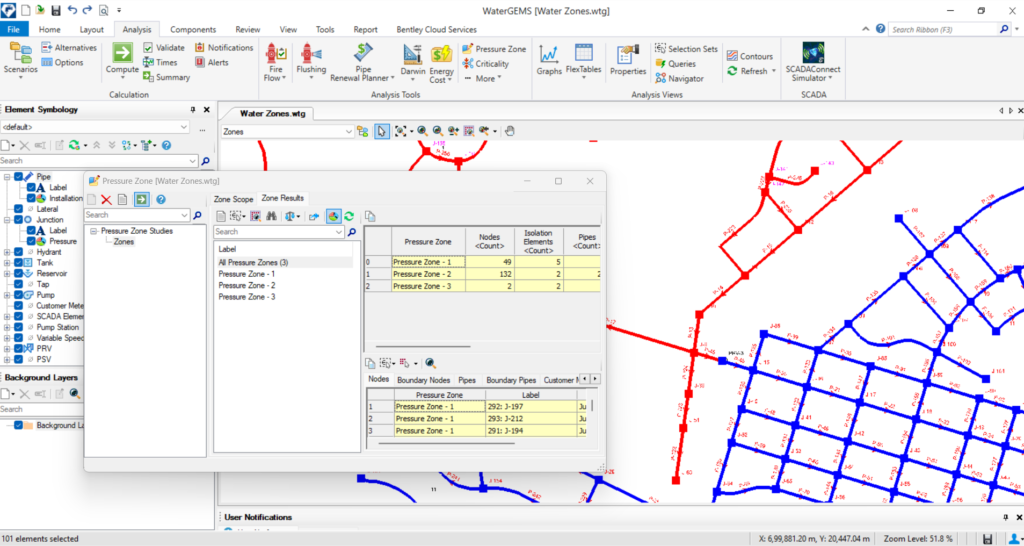
As I completed my master’s studies, I was thrilled to receive a job offer from a top software organization, which further solidified my career path within the water domain. So let’s overview this further.
The Role of Software Application in the Water Engineering and Environmental Engineering
In today’s digital age, software plays a vital role in every industry, including the water sector. As a professional dedicated to water and environment, I had the opportunity to join Bentley Systems, a renowned US-based software organization. In this role, my primary responsibility was to ensure software quality by applying my domain expertise, and creating a seamless user experience. Joining Bentley Systems allowed me to contribute to cutting-edge software solutions in the water domain in the OpenFlows Software portfolio also known as Hydraulics and Hydrology. Specifically, I worked as a domain expert for Bentley’s suite of modeling software, including WaterGEMS, WaterCAD, Hammer, SewerGEMS, CivilSTORM, StormCAD, and SewerCAD.
Leveraging Domain Expertise
Within the software organization, I brought my deep understanding of the water and environment domain to the table. Leveraging my expertise, I meticulously assessed and examined the software applications designed for water modeling. My role was to ensure that these software applications met the highest standards of performance, reliability, and user-friendliness.
Anticipating User Needs and Challenges
One of the key aspects of my responsibility was to anticipate the needs and challenges faced by end-users working in the water sector. By drawing upon my knowledge and experience, I could identify potential hurdles and bottlenecks that users might encounter while utilizing the software for modeling water, wastewater, stormwater, and flood systems. This insight allowed me to work closely with the development team to improve functionality, enhance user interfaces, and streamline workflows. Through collaborative efforts, we aimed to create software that seamlessly aligned with the requirements of water professionals, enabling them to carry out their tasks with efficiency and ease.
The Intersection of Technology and the Water Engineering and Environmental Engineering
Working in the software industry provided me with a unique perspective on the intersection of technology and the water domain. It highlighted the importance of collaboration and communication between software developers and water professionals. By bridging this gap, I contributed to the development of software solutions that effectively addressed real-world water challenges.
Conclusion
In conclusion, my experience in the software industry, focusing on driving software quality with domain expertise, has been instrumental in shaping the user experience within the water domain. By leveraging my understanding of water-related challenges and requirements, I actively contributed to the development of software applications that met the specific needs of water professionals. This journey emphasized the importance of collaboration, user-centricity, and continuous improvement in creating software solutions that enhance efficiency and effectiveness in the water sector. Through my role, I made a tangible impact in improving the user experience and fostering innovation within the water software landscape.
From Softwares Industry to Blogging: Embarking on a Water Engineering and Environmental Engineering Blogging
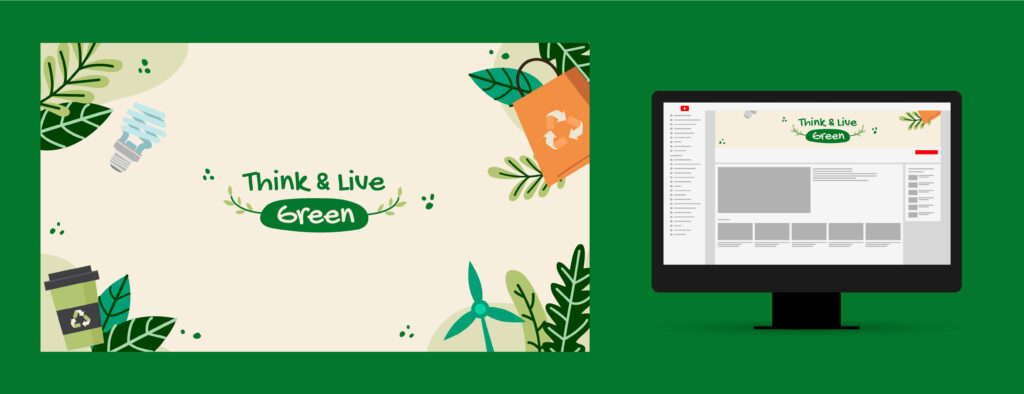
Continuing from my previous section, where I shared my experience in a software organization, I now want to share the next phase of my journey. After gaining a wealth of experience through various professional endeavors, I have decided to embark on a career in water and environmental blogging and content creation for an online community. This new chapter will allow me to combine my passion for the subject matter with my expertise and dedication to creating awareness and making a positive impact. In this section, I will delve into the details of my decision and how it will be built upon my previous experiences.
Sharing Valuable Insights and Raising Awareness
Drawing upon my past experiences and knowledge gained throughout my career, my journey into water and environmental blogging will be serving as a platform for sharing valuable insights, raising awareness, and fostering a sense of responsibility towards the preservation of our natural resources. By leveraging my expertise in water and environmental domains, I aim to create informative and engaging content that educates and empowers individuals and the global community, inspiring them to take action in their own lives and contribute to a sustainable future.
Wide Range of Topics
Through my blogs and content, I will be covering a wide range of topics related to water and the environment. This will include subjects such as water resource management, sustainable agriculture practices, forestry conservation, renewable energy solutions, and natural resource management. Through addressing diverse areas, I aim to provide a comprehensive understanding of water and environment and their interconnections. This encourages readers to embrace sustainability and make informed decisions.
Driving Awareness and Engagement
My blogging journey will be driven by the desire to create awareness and engage with a global community. Through well-researched articles, engaging stories, and thought-provoking discussions, I aim to capture the attention of readers and ignite their curiosity. By presenting complex concepts in an accessible manner, I strive to bridge the gap between scientific knowledge and everyday life, encouraging individuals from all walks of life to become actively involved in the protection and sustainable management of our natural resources.
Incorporating Past Experiences of Water Engineering and Environmental Engineering
Furthermore, by incorporating my past experiences into my blogging career, I bring a unique perspective to the content creation process. Working in grassroots NGOs, consulting firms, software industry, and pursuing higher studies shaped my understanding of water and environmental challenges. This firsthand knowledge, combined with my passion for effective communication, will allow me to craft content that resonates with readers, offering practical solutions and inspiring positive change.
Conclusion
In conclusion, my decision to pursue a career in water and environmental blogging represents the culmination of my varied experiences and passion for the subject matter. By sharing my expertise and knowledge through blogs and content creation, I aim to create awareness, inspire action, and foster a global community dedicated to preserving our precious water resources and promoting sustainable practices. This new journey builds upon the seamless linkage between my previous experiences and my current endeavor in field of water engineering and environmental engineering, enabling me to make a meaningful impact in the water and environment niche. Together, let us embark on this transformative journey and work towards a greener, more sustainable future.
Final Thoughts
Reflection on the Journey
My journey through the water engineering and environmental engineering domain has highlighted its versatility and interconnectedness. From grassroots NGOs to multinational consulting firms including IT organization, my experiences have shaped my professional growth and understanding of the challenges and opportunities within the water sector.
Building a Strong Foundation
Starting with a one-year training program sponsored by the Swiss Development Corporation, I gained a strong foundation in rural development, water supply and sanitation, and sustainable practices. This led me to work with a grassroots-level NGO, where I designed water supply systems and implemented watershed development programs.
Transitioning to Consulting
Transitioning into water management consulting, I honed my skills in modeling water distribution, wastewater, and stormwater. This allowed me to contribute to water infrastructure advancements and collaborate with professionals from diverse backgrounds.
Pursuing Higher Education
Motivated by knowledge, I pursued an international master’s degree in Water Engineering, delving deeper into subjects like hydraulics, hydrology, water treatment processes, and geospatial applications. This provided me with a global perspective and expanded my network within the water sector.
Embracing Multidisciplinary Approaches
These experiences have shown me that the water sector intersects with various industries, emphasizing the importance of multidisciplinary approaches, collaboration, and continuous learning. Committed to making a positive impact, I strive to foster awareness and drive sustainable practices in the water and environment niche.
Diverse Career Paths in the Water Engineering and Environmental Engineering
A career in the water sector offers professionals the chance to make a lasting impact by applying their expertise in diverse contexts and industries. For example, water management experts can transition into consulting roles, designing sustainable water strategies. Skills in rural development and watershed management can empower communities through grassroots NGOs.
Moreover, as environmental sustainability gains traction worldwide, there is an increasing demand for individuals with expertise in water and environment within the IT and software industry. These professionals play a crucial role in developing innovative solutions, such as water monitoring systems and data analysis tools, which contribute to more effective water resource management and conservation efforts.
Sharing Knowledge Through Blogging
With a desire to share my knowledge and raise awareness on water and environmental issues, I embarked on a career in blogging. Through online platforms, I aim to create informative and engaging content that bridges the gap between scientific knowledge and everyday life. By covering diverse topics such as water resource management, sustainable practices, and renewable energy solutions, I aspire to inspire individuals to take action and contribute to a sustainable future.
Conclusion
The transition from the training program to working with the grassroots NGO highlighted the versatility of the water sector as a career path. It reinforced the notion that professionals can make significant contributions in multiple industries while remaining true to their core expertise.
In conclusion, a career in water engineering and environmental engineering holds immense potential for professionals to make a meaningful impact while exploring diverse industries. By capitalizing on training opportunities, embracing multidisciplinarity, and leveraging their expertise, individuals can forge a rewarding career path within the water domain, addressing challenges and contributing to sustainable development.
Kindly stay updated and read the valuable insight from SIWRI blog. Read more about first blog on Aquifer and Groundwater: Importance in Water Management
*Disclaimer: The views and opinions expressed in this article are solely those of the author and do not represent any specific organization or institution.*
